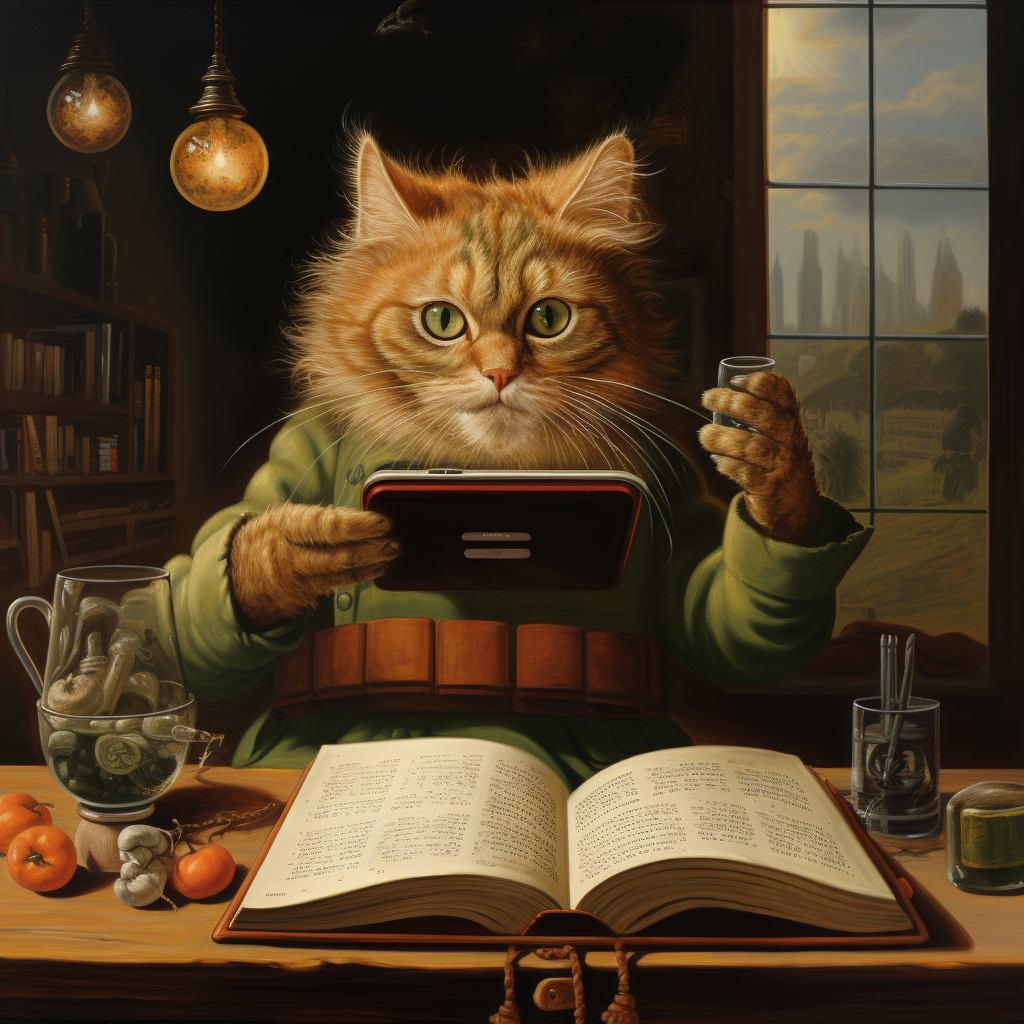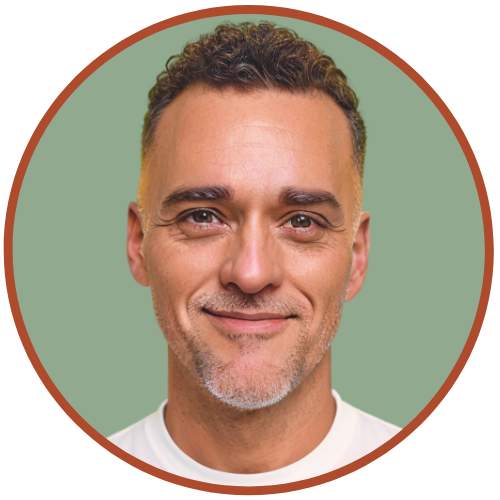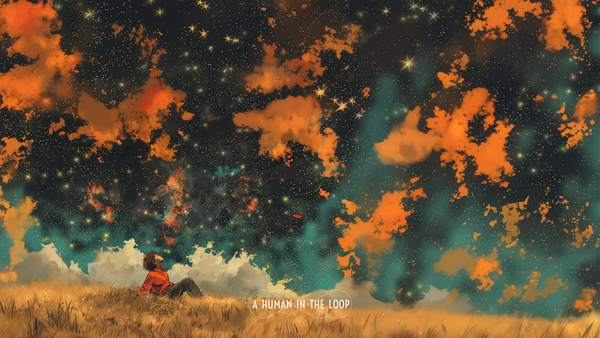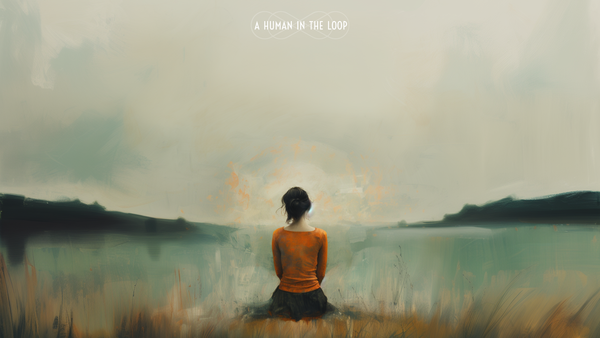The Curiosity-Stimulation Paradox: Navigating the Fine Line Between Knowledge and Overload
Curiosity is encoded in our brains to help us make sense of the world around us. So why have we stopped being curious? I use ChatGPT to help me make sense of it.

Why do people seem less curious about the world? I use ChatGPT to help me work through my theory.
If you’ve ever met me, you’ve experienced one of my most defining character traits:
I ask a lot of questions.
Like a sculptor gradually chiseling away, I am curious to discover what is hidden just out of view.
I refine my questions to reveal a form of truth.
Rarely am I satisfied with answers, but that is a conversation for another day.
Curiosity is encoded in our brains to help us make sense of the world around us. It requires both skill and effort.
The depths we allow ourselves to explore determine the level of knowledge we can potentially learn.
I recently stumbled upon a Fast Company article about curiosity, which left me curious to know more.
In the article, Stephanie Vozza describes this inquisitive trait as a superpower that can be regained — an atrophied muscle we can build back.
You see, even though research shows curiosity increases over our lifespan and is not unique to childlike inquisitiveness, it gets stamped out of us somehow.
Hmm? Curious...
Vozza references the DIVE method, taken from the book Seek: How Curiosity Can Transform Your Life and Change the World by internationally recognized curiosity expert, professor, and speaker Scott Shigeoka.
DIVE Method: Detach, Intend, Value, Embrace
- Detach: Let go of assumptions, biases, and certainties (ABCs)
- Intend: Before interactions, set an intention to be curious.
- Value: Recognize others’ dignity, knowing when to listen and share.
- Embrace: Welcome curiosity in challenging times.
This four-phased approach provides a simple framework for reconnecting us with the lost art of truth-seeking.
Moving beyond superficial interactions to meaningful conversations can give deeper insights into other people’s experiences.
I’m excited to check out Scott’s book, available as an audiobook on Spotify Premium.
The Curious Cat and the Itch
If curiosity has been vital to human evolution, a critical skill accompanying us through life, why do we need to reconnect or rebuild it??
Like an itch you can’t scratch, there’s the nagging question(s) yet to be answered:
Who stamped out our curiosity and why?!?
I refuse to acknowledge the value it brings and the severe lack of it in our world today without addressing the root cause of its absence.
After all, in addressing any issue or ailment, you must treat the root and the branch.
Like the AI neophyte I am, I went to the ChatGPT to make sense of my internal confusion.
I tried to begin my investigation with a clean slate. Letting go of my assumptions and starting with the basics to understand curiosity as a series of steps and the conditions necessary for it to occur.
I asked ChatGPT: If you were to describe curiosity as a series of steps or phases that one has to go through, what would those be? Use a single word or phrase for each.
ChatGPT offered these six phases of curiosity:
- Wonder
- Questioning
- Exploration
- Discovery
- Reflection
- Application
The chat continued.

Then I asked: What external factors or internal headspace need to be established for curiosity as an entire process to occur?

I loved the dialogue to this point but felt overwhelmed by all the words.
The potential for curiosity to be stamped out can come from any direction along this process.
I needed to get specific.
Let me pause you here.
I should disclose I had already begun forming a hypothesis at this point in the chat.
Amid being overwhelmed by the world and my place in it, I was coming to terms with how much time I had been spending on my phone—too many hours than I’d care to mention.
Basically, my dominant phone hand was becoming a claw, my thumbs hurt, and I think I need to get my eyes checked.
My brain felt oversaturated with AI research for a piece I’d been working on for my Substack. I had very little room for anything else.
Mental exhaustion meant base instinct was driving much of the conversation from this point on. I knew what I wanted to hear, and I wanted it right then and there. Now, back to the chat.
Getting to the Point

So we need the initial stimuli to be curious, but too much of it negatively impacts our ability to engage with new information meaningfully, let alone process it.
Think of it like you would the difference between a medicinal dose and a toxic dose of a medication or supplement.

But what is the appropriate dosage? How much stimuli is too much?
[Dramatic Voiceover] Oh, dear! Whatever shall we do?!
If we’re constantly being inundated by technology, information, noise, and chatter, there isn’t going to be much room for curiosity. Right?
So…

Cool, but this still puts the onus on the individual to regulate the inflow of stimulation.
What if everything you do — take work, for example — requires the consumption of massive amounts of information, research, and content?
What if you have no control over the pressure valve?
This is where the plot thickens.

OK.
I may be falling down a rabbit hole of conspiracy with my line of questioning, but my curiosity compelled me to go onward.

There it was, an answer to my initial question, stopping me in my tracks.
I was left dumbfounded, with no further questions, satisfied that the itch had been scratched.
I had hoped my hypothesis wasn’t too far off the mark, but my curiosity had brought me somewhere I didn’t entirely think I’d go.
Call it confirmation bias, AI hallucination, or perhaps I was leading the witness, but it was exhilarating to unlock the door to my questions and satisfy my curiosity.
However, the thing about curiosity, like me, it is never satisfied.
Behind the door was an infinite number of questions awaiting me, but they would have to wait.
I put my phone away, did a few stretches for my hands, and took a nap to give my eyes a rest. I had had too much stimulation for one day.
Now, let me ask you:
- When was the last time you were curious?
- Did you disregard it, or did you let it take you somewhere?
- Where did it take you?
Share your thoughts in the comments and then take a break from screen time – go for walk, meditate, or take a nap.
Thank you for taking the time to read my work. Subscribe today to receive posts like these in your inbox. Show your support for my work by buying me a coffee or becoming a paid subscriber.





